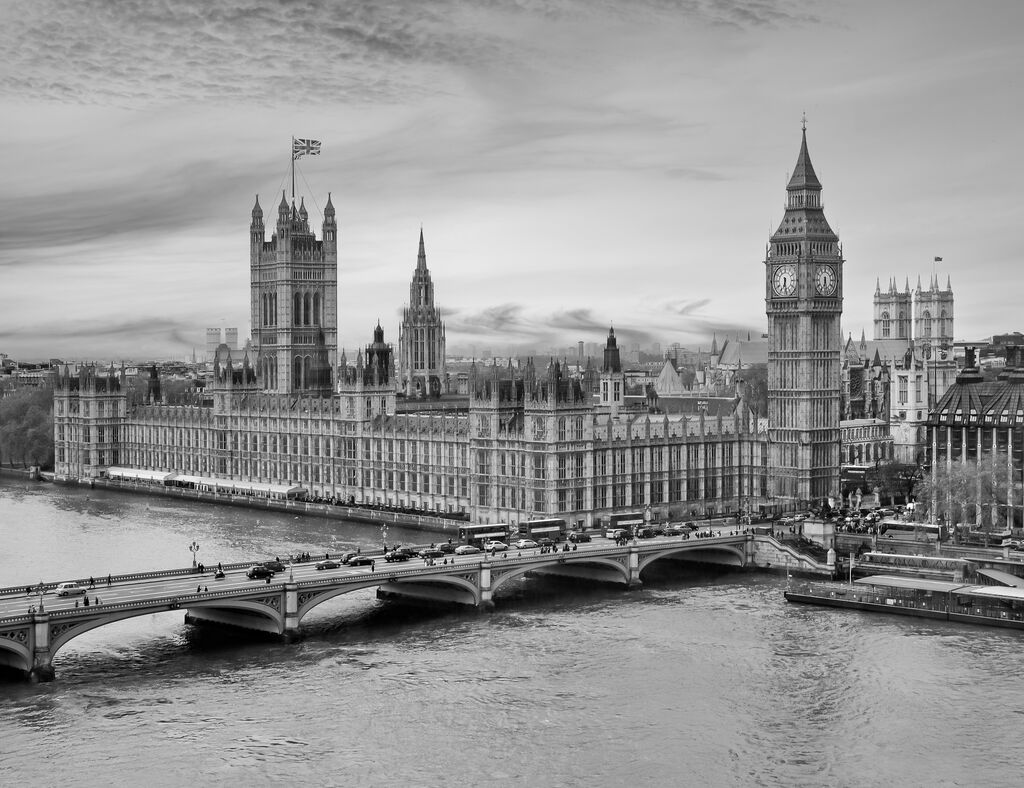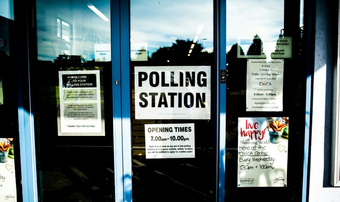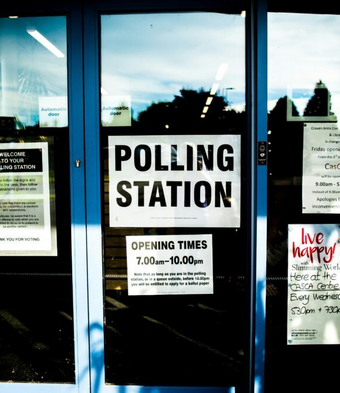A Black Friday

This is, truly, a Black Friday. 330 MPs in favour. 275 against. It was close. But it just wasn’t close enough. The Terminally Ill Adults (End of Life) Bill has passed its second reading.
It is a dark day for so many who are vulnerable, particularly those at risk of coercion. It is a dark day for many who are fearful, particularly those who are disabled. It is a dark day for so many who will be diagnosed with terminal illness, who will one day be faced with a choice they should never have had to make.
During the last week, I have been poring over every MP’s statement, every Twitter post, every forecasted result. For many of us, who have been praying, working, campaigning on this issue, in some cases for decades, it will be a day on which we might feel grief, a sense of injustice, or even anger. And that's normal. Even Jesus felt these emotions too; he raged against death; he wept at Lazarus' tomb.
It is a day on which our nation has changed. It has sacrificed some of those who are most in need, on the altar of autonomy. MPs think they are making ‘progress’, inexorable, forward-thinking, that they are ‘on the right side of history’, when in truth, this returns Britain to a pre-Christian era, a world in which life is no longer sacred, and in which not all lives are of equal worth.
Much ink has already been spilled about the problems with Kim Leadbeater’s extremely flawed Terminally Ill Adults (End of Life) Bill. We have spelt out the arguments around Assisted Suicide many times. The debates will continue to rage in the months ahead over whether safeguards are strong enough, and how the Bill might be amended. Some MPs suggested in today’s debate that they were voting in favour of the Bill for now, but might oppose it at Third Reading if the Bill was not seriously amended (raising major questions about why they voted for it now).
But this is not a day for rehearsing arguments or analysing Parliamentary arithmetic.
It is a day of sorrow and of tears.
“How long, Lord? Will you forget me forever?
How long will you hide your face from me?
How long must I wrestle with my thoughts and day after day have sorrow in my heart?
How long will my enemy triumph over me?”
(Psalm 13:1-2)
‘All get what they want. They do not always like it’
We may well ask: how did it come to this?
I actually think that the answer is quite simple; in Britain (and the West more generally), we have made ‘autonomy’ our god.
Gone are the days when the average MP believed in divinely-mandated moral absolutes, or in ‘the sanctity of life’. Our increasingly secular nation has lost its faith in God as the Author of Life. But in His place, we have erected a new idol in the midst of our moral vacuum: ourselves.
It was the repeated refrain from the pro-assisted suicide body: ‘I deserve the right to choose.’
In a sense, it was ever thus. Just think back to the Garden of Eden. The serpent said to Eve about the fruit from the tree of knowledge of good and evil: “God knows that when you eat from it your eyes will be opened, and you will be like God, knowing good and evil.” And yet Adam and Eve decided to make themselves God, rebelling against His commands. Essentially, they asserted their right to choose.
Autonomy is the one moral absolute still going; it lies at the heart of the only real sexual rule to have not yet been eroded (consent), at the heart of the gender wars, at the heart of our debates around life and death.
And of course, freedom is generally a very good thing. But if autonomy is the one moral absolute, then who is the one true judge of good and evil: yourself. That is the literal definition of the word: ‘law by yourself’. In this world, if you don’t want an Assisted Suicide, don’t have one.
And too many Parliamentarians today have simply absorbed this philosophy without examining its consequences. Tim Farron made an excellent speech, in which he explained the difference between ‘liberalism’ and ‘libertarianism’. He is, he said, a liberal. He is not a libertarian: libertarians believe in your right to do whatever, regardless of the impact on others. Liberals believe your right to do what you want is limited by its effect on those around you.
And Assisted Suicide legislation will impact those around you, particularly given, as one of the most grotesque sections in this Bill spells out, a doctor can raise the prospect of an Assisted Suicide with a patient unsolicited.
We have made an idol of ourselves; our freedom; our choices; our bodies. And what happens when we do that? I’ve been reflecting on the words of Romans 1: “Although they claimed to be wise, they became fools and exchanged the glory of the immortal God for images made to look like a mortal human being and birds and animals and reptiles. Therefore God gave them over in the sinful desires of their hearts…”
Ultimately, God says, ‘Have it your way’. In C.S. Lewis’ ‘The Magician’s Nephew’, the White Witch gains lasting life for herself by eating the fruit she was forbidden from taking for herself. The result was misery. Aslan says, “Things always work according to their nature. She has won her heart's desire; she has unwearying strength and endless days like a goddess. But length of days with an evil heart is only length of misery and already she begins to know it. All get what they want; they do not always like it.”
This feels like one of those situations: “All get what they want.” Our nation has, for decades, chosen to prize autonomy above all else. As soon as absolute autonomy is your god in one area of life, it will lay claim to another. The path towards Assisted Suicide has been long in the making, when we forgot our obligations to the community and to God, and prized our own desires above all else. This is the result.
Protecting the vulnerable
At CARE, we have always been so mindful of the impact of Assisted Suicide legislation upon the vulnerable. Proverbs 31:8-9 is a passage close to our heart:
“Speak up for those who cannot speak for themselves,
for the rights of all who are destitute.
Speak up and judge fairly;
defend the rights of the poor and needy.”
This was something reflected by many of the contributions within the debate, particularly from those opposing the Bill.
It is well known that many in the disabled community feel afraid about the impact of legislation. In recent weeks, the impact upon those living in poverty has also been made clear, after a report in Ontario revealed that those living in the poorest areas were far more likely to choose Assisted Suicide than in more affluent areas. Others, such as Jess Asato, spoke superbly about how women are particularly at risk of coercion from men, and the impact of domestic violence.
Florence Eshalomi, Labour MP for Vauxhall and Camberwell Green, who spoke powerfully about her own mother’s experience, concluded her superb speech, “true compassion must have equality at its heart. That is why I will be voting against this Bill.”
My heart is grieved for those who will wake up tomorrow feeling that little bit less safe, or like their country views them as a second-rate citizen. It should not have been so.
Danny Kruger, who led the response to the Bill, and who had previously been Chair of the APPG for Dying Well, ended his speech with a striking conclusion:
“I’m talking about the people who lack agency: the people who know what it is to be excluded from power, to have decisions made for them by bigwigs in distant offices speaking a language they don’t understand. The sort of people the Honourable Lady and I both know from our charity work, and we all know from our constituency work. Not the ones who write to us campaigning for a change in the law, but the people who come to our surgeries with their lives in tatters, or who the police and social workers tell us about, the people with complex needs.
What are the safeguards for them? I will tell you. We are the safeguard. This place. This Parliament. You and me. We are the people who protect the most vulnerable in society from harm, and yet we stand on the brink of abandoning that role. The Rubicon was a very small stream, Mr Speaker, but on the other side lies a very different world, a worse world with a very different idea of human value: the idea that our individual worth lies in our utility, valuable only for so long as we are useful - not a burden, not a cost, not making a mess. Let’s not be the Parliament that authorises that idea.”
It is a tragedy that this safeguard has now been eroded, and we stand closer to the precipice.
Praying for a miracle
Something has changed about Britain today.
But the fundamental truths which we believe in, about the fabric of the universe…they hold just as true now as they would have done had we won the vote today.
There is a God on high. He is still sovereign. He does know what He is doing. He does raise up kings (and governments). His eye is on the sparrow. He does care about every one of us. He has sent His church out to be His hands and feet.
Truths are still true.
In the meantime, I will be praying to the God who “changes times and seasons.” And I will still be praying for a miracle. Yes, Parliament voted on the Principle of the Bill today, and it will be much harder now to stop it than it would have been before.
But we do believe in a God of miracles. It is almost two years now since the Scottish Parliament passed the Gender Recognition Reform bill, would have introduced self-ID for transgender people in Scotland. That felt like a dark day. And yet, miraculously, the legislation did not come into law, its architects were unceremoniously removed from office, and now the idea has been almost entirely dropped.
There are still further stages to come. The Bill now goes to Committee stage. It will still be debated in the House of Lords. It will return to the Commons, at which point MPs who said today they would vote for it, but wanted to see changes made, will have to reflect on whether they are satisfied with those changes or not.
We do believe in a God of miracles. If Jesus can defeat the power of the grave, and overturn death, He is more than capable of intervening on an ‘Assisted Dying’ law.
Come, Lord Jesus.






